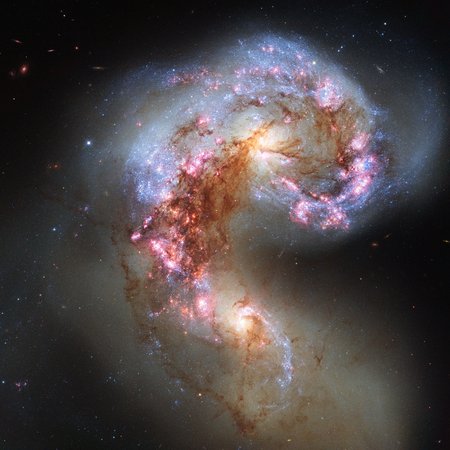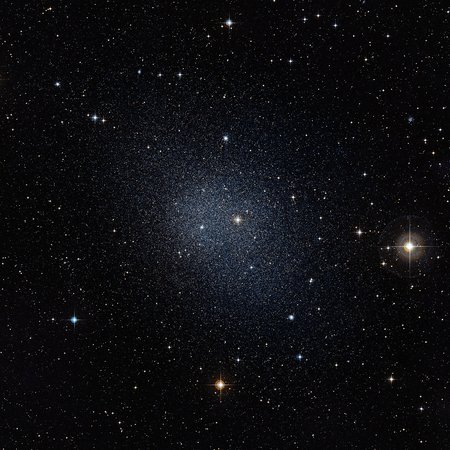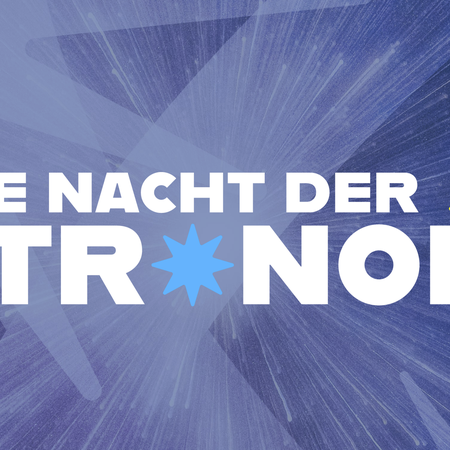Virtual lecture: Babelsberg Starry Night on 17 October 2024

Gas of a simulated interacting pair of galaxies. Interactions between the galaxies and in particular the behaviour of the gas play an important role in the formation of galaxies.
Credit: Rainer WeinbergerThe next talk of the Virtual Babelsberg Starry Nights of the Leibniz Institute for Astrophysics Potsdam (AIP) on the topic "The physics of the formation of galaxies" (German) by Dr. Rainer Weinberger will be broadcast on the YouTube channel “Urknall, Weltall und das Leben” (Big Bang, Universe and Life) from Thursday, 17thOctober 2024.
The next virtual lecture in the Babelsberg Starry Nights series will be online on Thursday at 8 pm. Dr. Rainer Weinberger, head of a Leibniz Junior Research Group at the AIP, will talk about ‘The physics of galaxy formation’. How do galaxies form in our universe? Which physical processes play an important role? With the help of modern computer simulations, researchers are able to find answers to these questions. Starting in the early universe, taking into account the cosmic expansion and gravitational forces, scientists can explain the large-scale structure and spatial distribution of galaxies. To understand star formation in galaxies, additional aspects must be taken into account, in particular the gas dynamics and the interaction of gas with radiation. One of the most important research results of recent years is the role of feedback effects of already formed stars and active galactic nuclei on the evolution of the galaxy itself. For example, stars that explode in a supernova heat up the surrounding gas and drive it apart with strong winds, which can make the formation of new stars much more difficult. Understanding these complex feedback effects in detail is one of the aims of current research at the Leibniz Institute for Astrophysics.
More information about Rainer Weinberger himself and his research can be found in a short interview that will be published on the YouTube channel ‘videowissen’ at the same time as the lecture:
https://youtu.be/C5TXmpcVoY4
Usually on the 3rd Thursday of each month, starting at 7 or 8 p.m., the lectures of the Babelsberg Starry Nights become available at
https://www.aip.de/babelsberger-sternennaechte
and via the YouTube channels "Urknall, Weltall und das Leben" (Big Bang, Universe and Life) and "videowissen" and can be viewed afterwards at any time.
Images
Gas of a simulated interacting pair of galaxies. Interactions between the galaxies and in particular the behaviour of the gas play an important role in the formation of galaxies.
Big screen size [1000 x 1032, 350 KB]
Original size [1453 x 1500, 430 KB]



